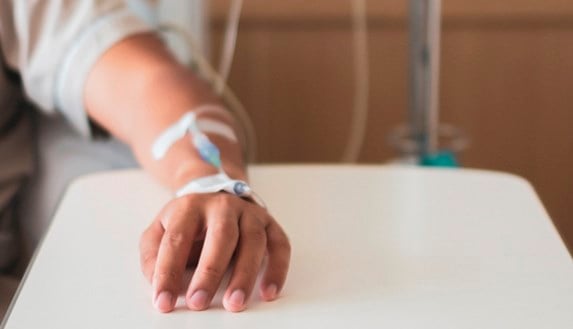What Are the Long-Term Effects of Lung Cancer Treatment?

Lung cancer treatment can have several side effects. While the majority of complications occur during treatment cycles (e.g., nausea and vomiting are most common during and immediately after chemotherapy), there are some potential long-term effects as well.
Lung damage
When radiation therapy is directed at the chest, as occurs during lung cancer treatment, the ionizing radiation can cause long-term damage to the healthy tissues. Some of the medications used for lung cancer chemotherapy can do the same. Potential issues include:
- Inflammation
- Loss of lung function
- A thickening of the lining of the lungs
- Difficulty breathing
Respiratory therapy is one way to help counteract these effects and improve a patient’s quality of life. Additionally, oncologists can prescribe the chemotherapy medications that have the fewest potential side effects and use advanced delivery methods to ensure the precise delivery of radiation therapy.
Cardiotoxicity and other forms of heart damage
Cardiotoxicity, or damage to the heart muscle, can also develop after lung cancer treatment. While some of this damage may be reversible, the majority is usually not. There are, however, medications known as cardioprotective agents that can help reduce the likelihood of cardiotoxicity. Lung cancer survivors may also experience other heart-related complications, such as hypertension (high blood pressure), arrhythmias (irregular heartbeats) and coronary artery disease.
Lymphedema (chronic swelling)
When lung cancer spreads to the lymph nodes, it is often necessary to remove them. This can lead to the development of lymphedema, the over-accumulation of lymphatic fluid, which in turn can cause pain and swelling (most often in the hands and feet).
Supportive care as part of Moffitt Cancer Center’s comprehensive approach
At Moffitt Cancer Center, we recognize that lung cancer treatment doesn’t end after surgery or the conclusion of a chemotherapy cycle. Our compassionate team is here to provide both short- and long-term supportive care as part of our commitment to comprehensive treatment. For instance, our unique Cardio-Oncology Program is designed to help patients prevent and treat heart-related complications of lung cancer treatment. No referral is required to make an appointment.
Medically reviewed by Dr. Tawee Tanvetyanon.
If you’d like to request a consultation at Moffitt Cancer Center, call 1-888-663-3488 or submit a new patient registration form online.
FAQs
- Signs and Symptoms
- Diagnosis
- Treatment
- FAQs
- Lung Cancer Early Detection Center
- Lung Cancer Screening and Surveillance Program
- Lung Nodules
- Lung Surveillance Clinic
- Metastatic Lung Cancer
- Recurrence
- Survival Rate
- Your Lung Cancer Specialists
- Lung and Thoracic Tumor Education (LATTE)
- Thoracic Clinic Updates
- Insurance & Financial Information
